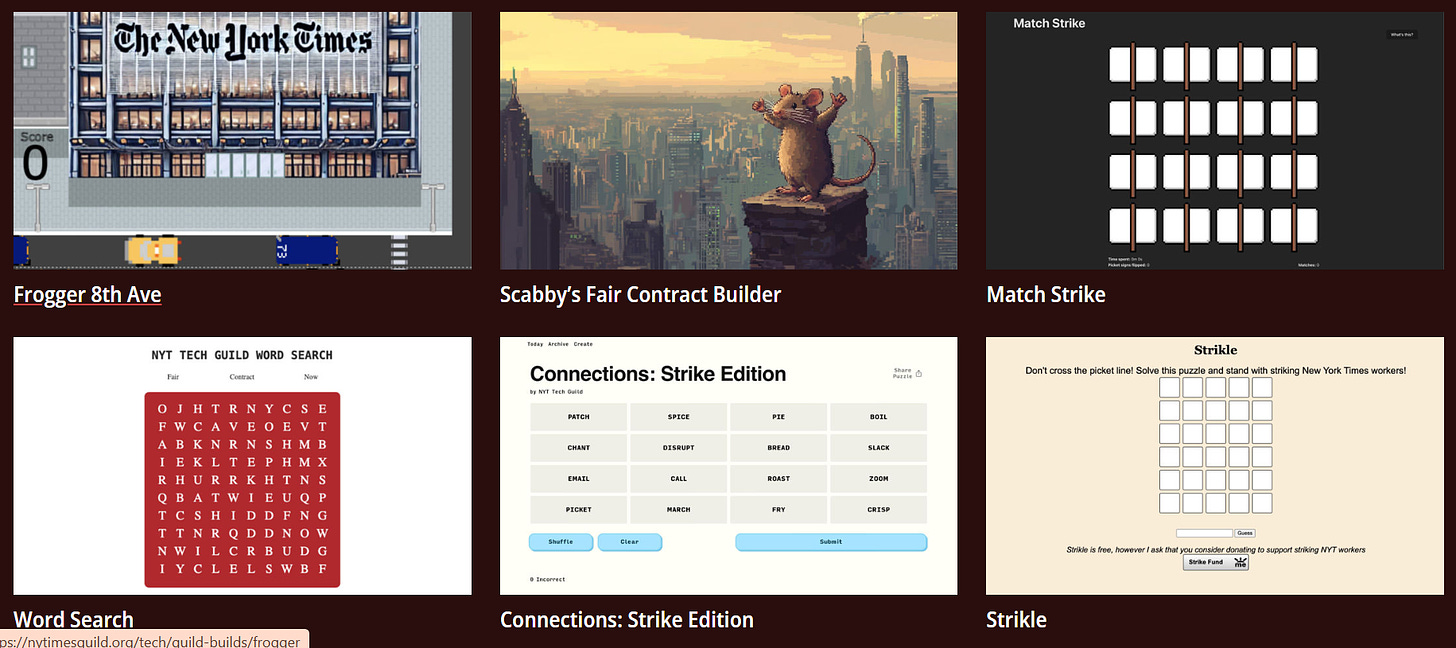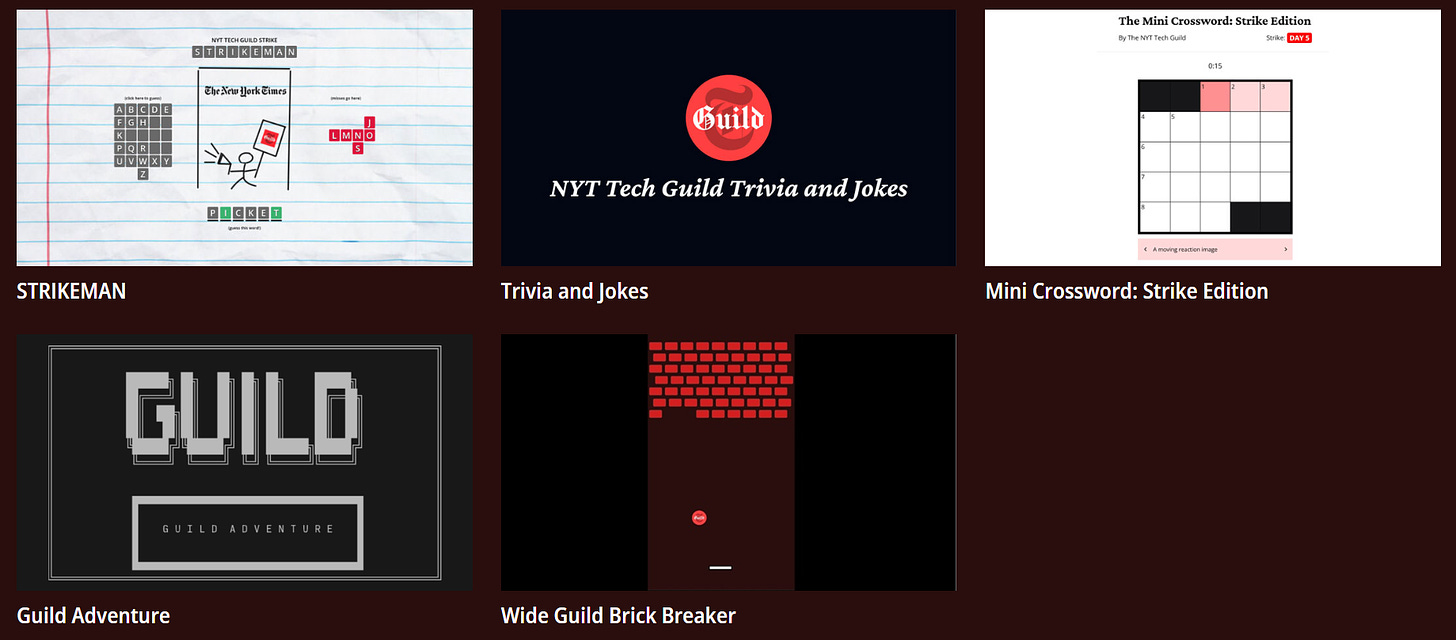First, a note: The Journal of Wordplay #7 will release on November 25. This is a week behind its previously announced launch date. This is 100% due to personal distractions on my end. Between good news and bad news—mostly my new job and election-related matters—I’ve just been too distracted to put the new issue together the way it should be put together. That’ll be my primary focus for the next few days, though.
Now, let’s talk about something else I’m late to the party about.
The day before the presidential election, the New York Times’ digital staff (as opposed to the entire publishing division) walked out. Because they’d done their jobs, most of the New York Times site continued to work fine, but there were certain glitches and troubles. No doubt those would have accelerated had the NYT and the strikers not reached an agreement, which they did early this week.
Many supporters of the strike suspended their visits to the NYT apps and website. But of course, this put puzzle lovers in a bit of a bind. We’d come to rely on NYT puzzles for our distractions, and if there was any time we needed them more than ever, it was post-election. What to do?
Well, it turns out a bunch of strikers who are good at tech can just build their own webpage.
The formats of most of these games are simple and intuitive, especially if you’ve played some of the NYT’s more popular word games like Connections and Wordle. Curiously, there was no direct analogue to Strands, but there was a word search, which was somewhat similar. It’s not a word game and therefore is a little off brand for me, but my favorite is “Frogger 8th Ave.”
Most of these games (and puzzles, if you prefer) weren’t updated on a reliable schedule, and since a lot of them had a certain strike-centric focus, they probably would have run out of fresh ideas before too long. Fortunately, the strike was resolved before that could really matter.
There’s an implied statement, a declaration of independence that comes from putting together quality online games so fast. But the strike focus also allows us to imagine a world where such games serve more specific interests, a more identifiable point of view. Puzzlers have taken issue with the NYT over other matters—a number of them stopped submitting to the paper over its Palestinian coverage. While puzzlemakers often aspire to be apolitical, some politics creeps into the existence of any long-lasting cultural product.
In more general terms, that’s what the indie puzzle scene is about—a place for a greater variety of voices to be heard. Which facts are important, and which facts are facts? Which words are important, and which words are words? The answers to these questions get murkier away from the mainstream, but that’s why it’s rewarding to spend time there. The NYT often pretends that non-mainstream puzzles don’t exist. Its staffers know better.
Next: A zorse is a horse, but what else is Zorse?





The last reports I've seen indicate that the agreement has not yet been reached, but the strike has ended. I also remember, but can't find right now, a report that they had originally planned for the strike to last a week. Is there newer news?